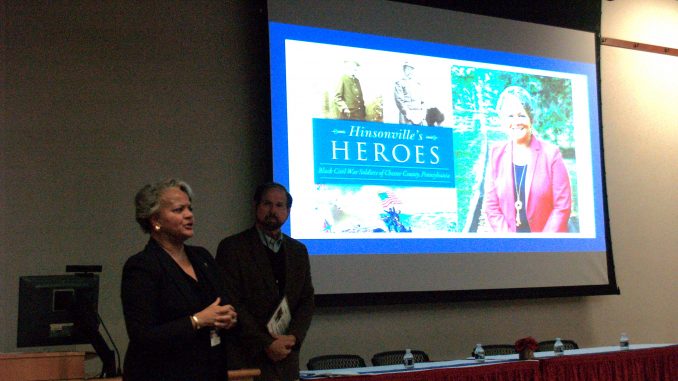
The Department of Africology and African American Studies held its 17th Annual Underground Railroad and Black History Conference, “Teaching Black History at the Digital Age,” on Wednesday in Ritter Hall. Approximately 150 students from Temple, Lincoln University, Roxborough High School and Northeast High School attended.
This year, the department focused on digital learning and the benefits of using technology to teach black history.
The event took place in the Walk Auditorium and featured several speakers, including filmmaker MK Asante, historian Cheryl Gooch, Temple librarian Latanya Jenkins and Billy Penn reporter Layla Jones. The panel was chaired by Timothy Welbeck, a civil rights attorney for Philadelphia’s chapter of the Council on American-Islamic Relations and an assistant professor in the Department of Africology and African American Studies.
Nilgün Anadolu-Okur, the event coordinator, said that digital media is beneficial to black history.
“Digital media, I believe, will create many benefits, especially for the younger generation because they are tuned,” said Anadolu-Okur, a professor in the Department of Africology and African American Studies. “They have the ability to decide which information is good and which is bad.”
However, digital media can also spread misinformation, Jenkins said.
“It has been going on for a long time, false information being spread into the digital media world,” Jenkins said. “I don’t think it will stop. Black people are aware of that because of how they’ve been misrepresented in the media.”
While digital media has helped disperse information about black history, it can still be used as a tool to spread false information, said Lauryn Reed, a junior global studies and Africology major who attended the event.
“I think the internet has impacted the spread of black history, but sometimes, it can be falsified information depending on who’s giving it,” Reed said. “But, I think it has positively impacted the black community and the spread of black history.”
The digitalization of black history does not diminish the significance of oral history, Jones said.
“It is so important to emphasize that the digitized age does not eliminate our African American oral traditions and our oral history,” Jones said. “The digitized era enhances it.”
Chanell McClain, a sophomore communications major, said that digital media functions as “a platform for black people to speak on.”
Welbeck encouraged students to use the privilege that the digital age offers them to change the way that black history is presented in the media.
“Oftentimes, people are limited by their vantage point, but we know, by over the course of time, there’s some stories that have been erased, some voices that have been muted, and you all are in positions to change that,” Welbeck said.


Be the first to comment